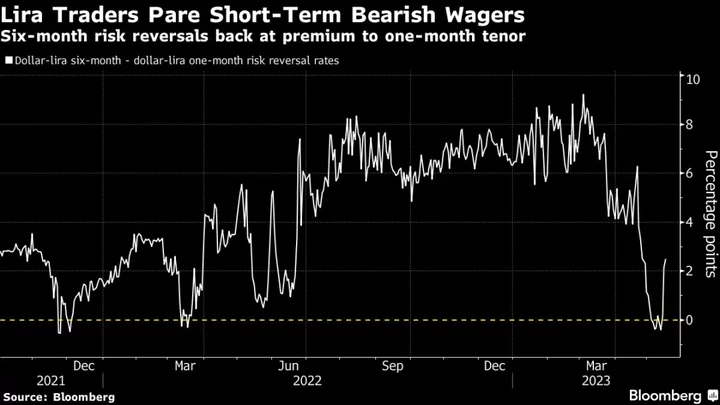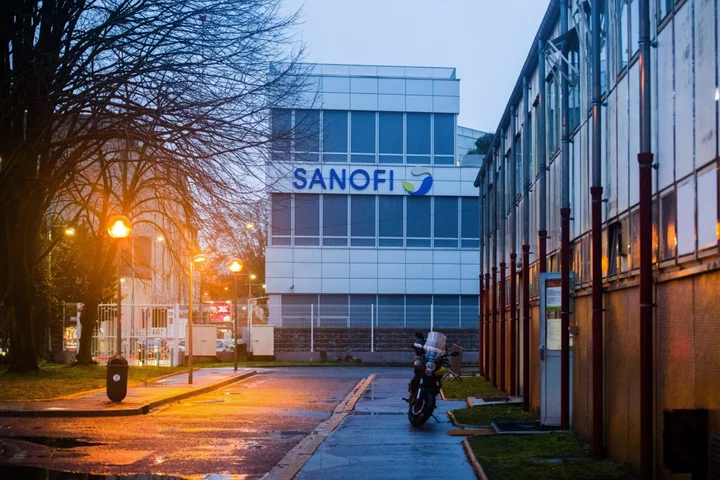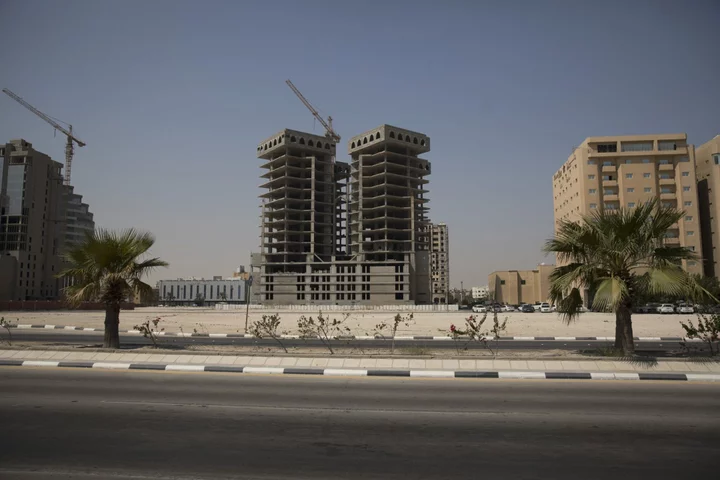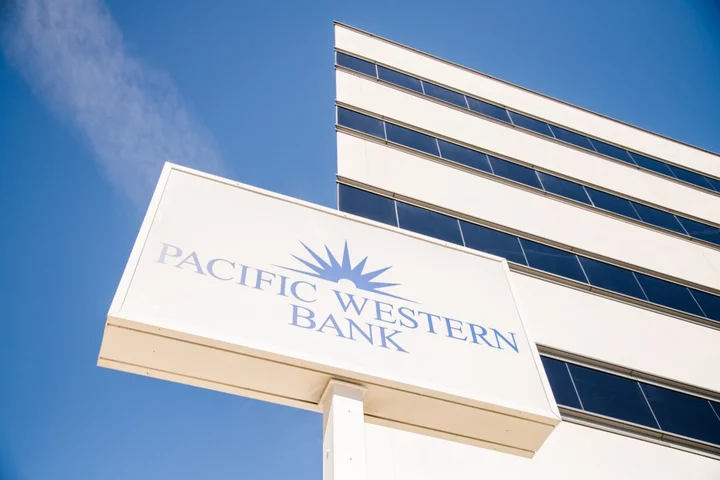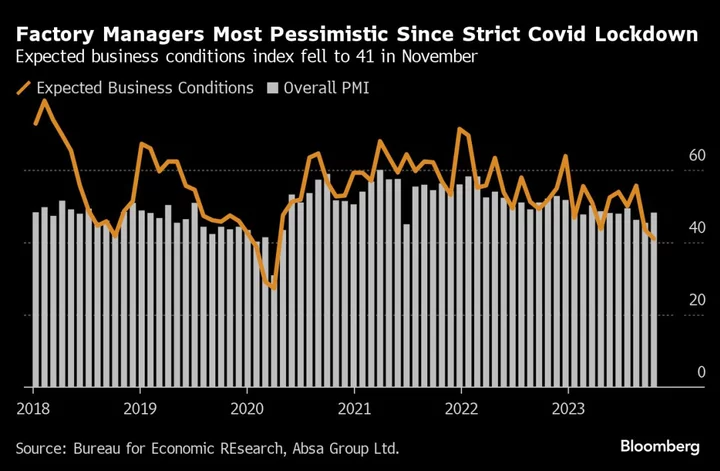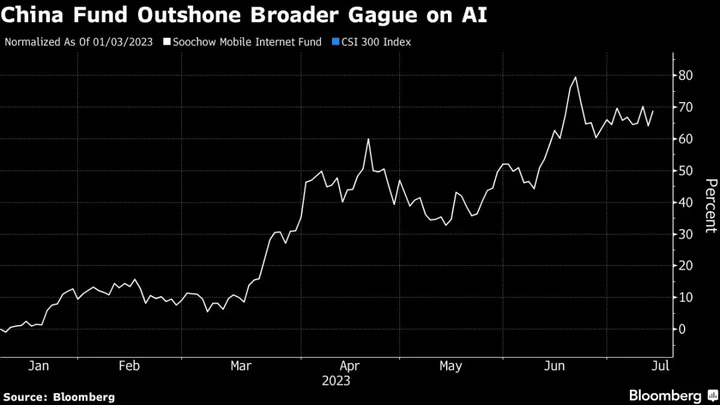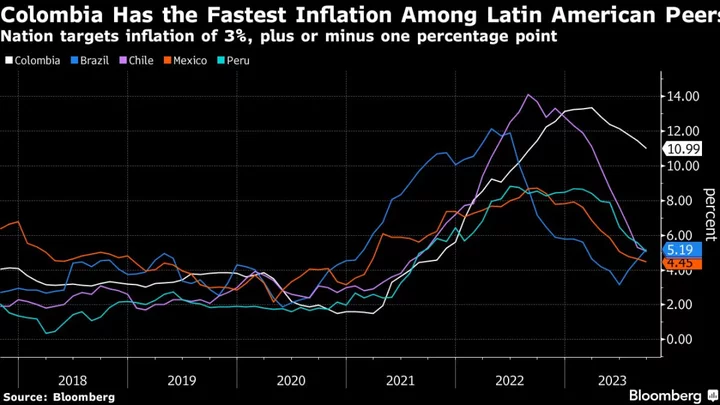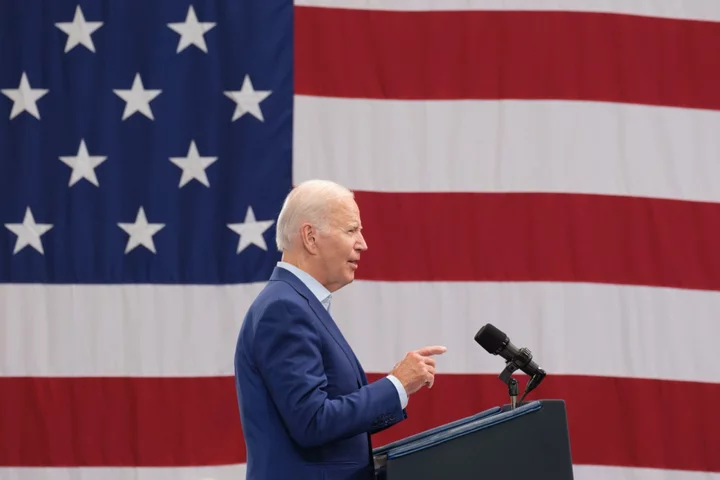Investors have come to terms with the prospect that President Recep Tayyip Erdogan’s unconventional stewardship of the economy is here to stay for as long as Turkey can afford it.
Wrong-footed by Erdogan’s stronger-than-expected showing in weekend elections, markets have now completely pushed back expectations of when the lira may weaken sharply.
Options traders now see a two-thirds chance of the Turkish currency weakening to 26 per dollar in the last three months of the year, which would amount to a depreciation of 24%. It’s a significant shift in the timeline from the end of last week, when they expected that level to be reached before the end of September.
On Wednesday, policymakers told lenders to channel more hard currency into liras in retail accounts. A day earlier, they unveiled new rules that penalize commercial banks if their customers purchase gold or withdraw cash using credit cards.
While ballots were still being counted, state banks also began intervening to support the exchange rate.
“Erdogan’s government will try to keep interest rates as low as possible and it will also try to avert the necessary currency adjustment as a much weaker lira would be inflationary,” said Viktor Szabo, an investment director at Abrdn in London. “But it will be extremely challenging to achieve both objectives at the same time.”
The lira has been under pressure since Turkey ramped up a slew of unorthodox economic policies starting in 2018, ranging from state intervention to interest-rate cuts in the face of surging inflation. Stealth interventions by the central bank reached $30 billion in April alone, according to Bloomberg Economics, bringing the total spent since December 2021 to nearly $177 billion.
The central bank’s net foreign assets are estimated by Goldman Sachs Group Inc. at nearly $73 billion below zero when swaps with lenders and other central banks are taken into account, a level the US bank said is now “below those that preceded previous periods of currency volatility.”
Traders remain more bearish on the lira than on any other currency in the world, based on one-month risk reversals, which measure the cost of hedging against its depreciation.
What Bloomberg Economics Says...
“Turkey’s presidential election has been confirmed as needing a runoff on May 28. This spells more trouble for the lira, which has already lost 21% against the dollar over the past year. The uncertainty on the outcome will put intense downward pressure on the currency. In addition, it’s possible the central bank halts its lira support — precipitating a crash.”
— Selva Bahar Baziki, economist. Click here to read more.
Pressure on the currency is set to grow in the fourth quarter given Turkey’s “widening imbalances,” even if inflows from partners such as Russia and Gulf Arab countries — combined with regulatory controls and active reserve management — may initially curb a sharp decline in the lira, according to analysts at Morgan Stanley.
The extra cost to protect against lira declines over the coming month — versus hedging against gains — has fallen to 13 percentage points, from a record high of 16.9 reached last week, according to risk reversals.
The retreat has sent its level back below that of six-month risk reversals. Bets that an opposition victory would lead to a rollback of Erdogan’s policies had sent one-month premium surging since April, resulting in an anomaly in May that made it more expensive to hedge in the short term than in the second half of the year.
The Turkish currency was little changed at around 19.76 against the dollar as of 10:38 a.m. in Istanbul on Wednesday. The spread between 12-month forwards on the dollar-lira pair and three-month contracts climbed to the highest level since August, according to data compiled by Bloomberg.
Derivatives used to bet on future borrowing costs are meanwhile showing traders have started to temper their expectations for an interest-rate increase after Sunday’s elections.
Erdogan’s main challenger, Kemal Kilicdaroglu, and his opposition alliance were promising to reverse many of the current administration’s economic policies and appoint a more independent central bank chief.
The central bank has slashed borrowing costs by a cumulative 550 basis points since embarking on an easing cycle last year. Growing pressure on the lira in the fourth quarter “could trigger a partial reversal in the policy rate,” according to Morgan Stanley.
“Markets are likely to assume that momentum is now with Erdogan,” Morgan Stanley analysts, including Hande Kucuk and Alina Slyusarchuk, said in a report on Monday. “We do not see a decisive turn in interest rate policy in case of no political change.”
--With assistance from Beril Akman, Asli Kandemir and Kerim Karakaya.
(Updates with forwards chart to reflect latest pricing.)

